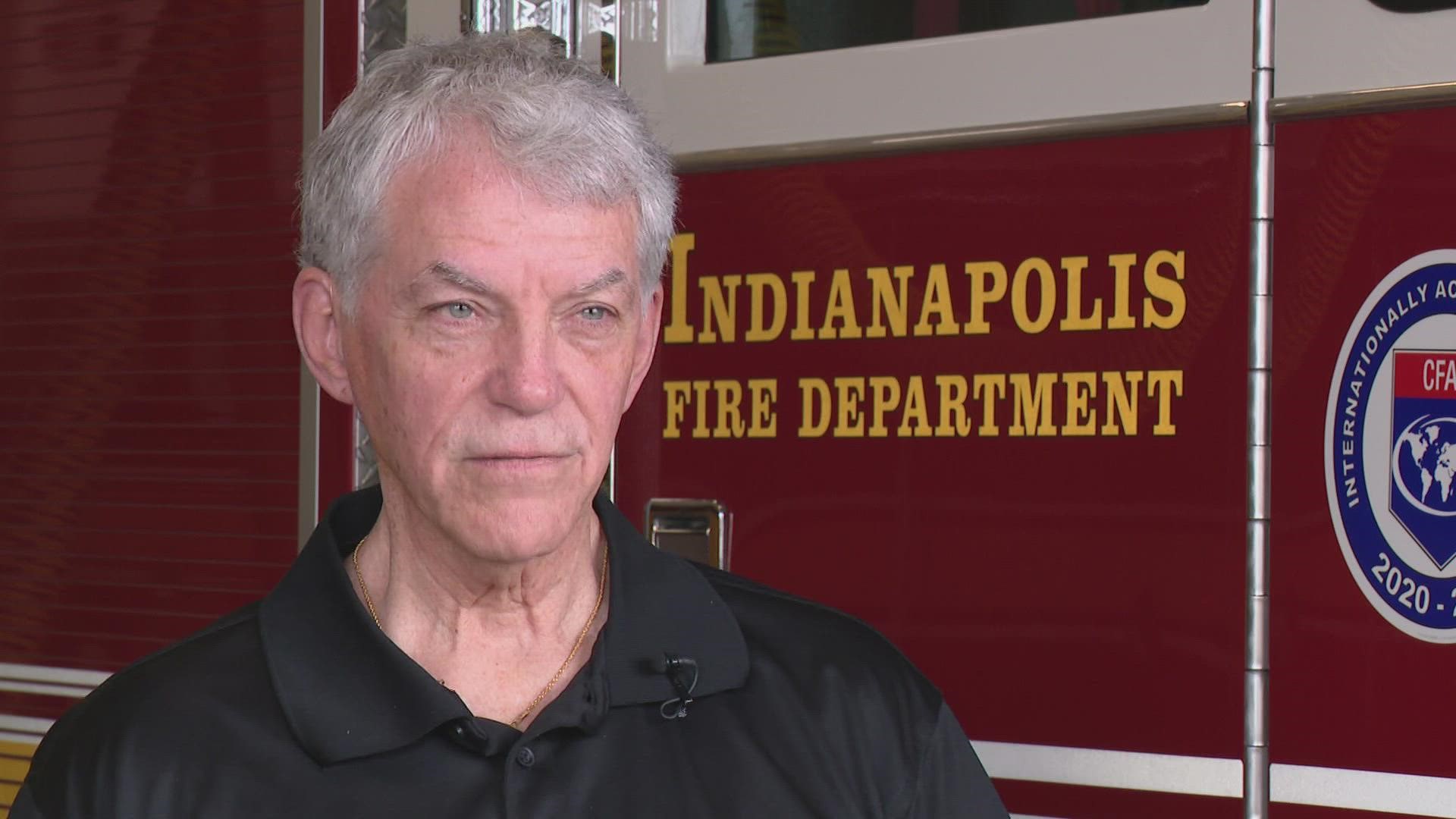INDIANAPOLIS — January is Firefighter Cancer Awareness Month, and here in Indianapolis, some firefighters are helping ensure that recently diagnosed firefighters get the help they need.
Tim McDonnell retired from the Indianapolis Fire Department after working at Station 44 on the east side for 40 years.
In 2000, McDonnell received news that would change his life.
"I was diagnosed with nasopharyngeal cancer on Oct. 19th, 2000," McDonell said.
The cancer was located in his upper throat, and he has since beat it.
But, that's not the case for all firefighters. In fact, the Firefighter Cancer Support Network (FCSN) says firefighters have a 9% higher risk of getting cancer and it's the leading cause of death for firefighters.
"Today, when there's a building fire, when a firefighter crawls into that building, odds are they're the only natural thing in there," McDonnell said. "All the materials have a tremendous amount of carcinogen in there from the burning synthetics."
Occupational cancer is currently the leading cause of death among firefighters.
"You also absorb all those chemicals through your skin, the chemicals that are in the smoke," McDonnell said.
McDonnell said the FCSN helped provide mentors during his chemo treatment — a huge resource for those recently diagnosed.
"They will find a firefighter who has had either the same cancer or similar treatment, so you have somebody to talk to who understands what you're going through," McDonnell said.
He says early screening for detection, along with proper firehouse cleaning rules are key in preventing a deadly disease.
"It's grueling, and it's debilitating but if they catch it early and you can get through it, you can get through it," McDonnell said. "If they say you should start getting a colonoscopy at age 50, we need to be at the front of the lines. We need to be at 45 or 40 when we start getting them."
For more information and resources, click here.

